Review by Tim Robins
Tim Robins heads out to watch Wonder Woman 1984 at his local Odeon so you don’t have to… unless you really want…
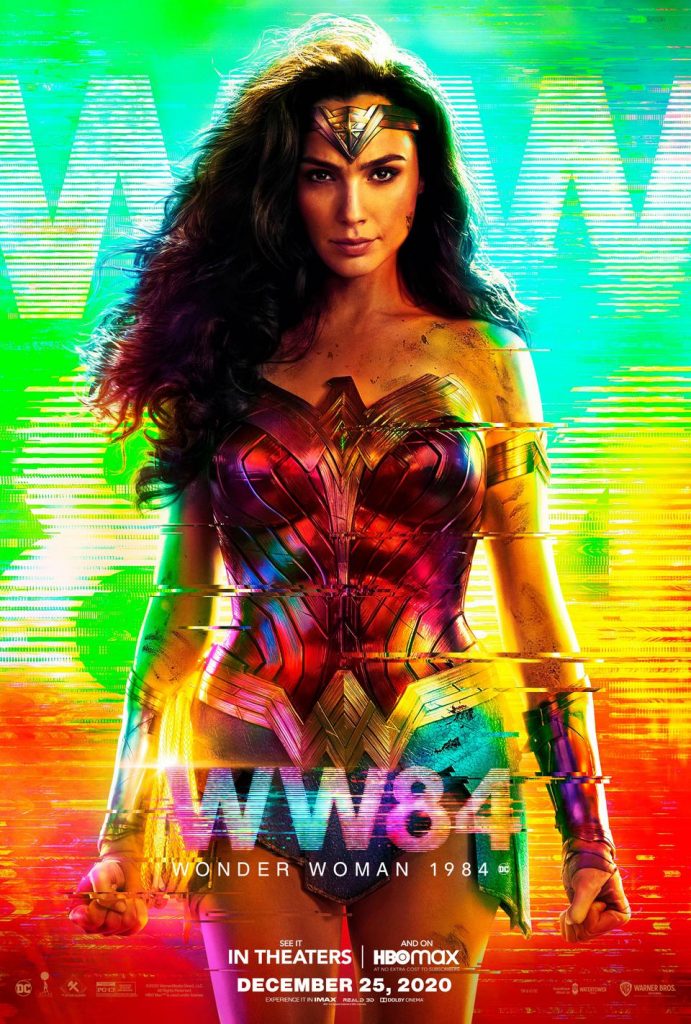
Wonder Woman carries with her a lot of good will, un-diminished and largely untouched by the extended Snyderisation of DC’s on-screen Universe of woes. In comics, Wonder Woman has enjoyed a few moments in the sun, including the character’s first extraordinary run by psychologist-writer Charles Moulton Marston and artist Harry G Peter in the 1940s and a glittering revival by George Perez in the 1980s. But it is the 1970s TV show that has lodged in hearts and minds, making Wonder Woman an inspirational figure for many young women.
As a feminist icon, Wonder Woman began on dodgy ground, thanks to the muddled values of Marston, who wrote: “Not even girls want to be girls so long as our feminine archetype lacks force, strength, and power. Not wanting to be girls, they don’t want to be tender, submissive, peace-loving as good women are. Women’s strong qualities have become despised because of their weakness. The obvious remedy is to create a feminine character with all the strength of Superman plus all the allure of a good and beautiful woman.”
Out of this psycho-analytic mess, feminist (and sometime CIA asset) Gloria Steinem and DC’s owner, Warner Communications, led a revival of Wonder Woman as a positive role model for women. In 1972 the various synergies led to the character appearing on the front of Ms Magazine.
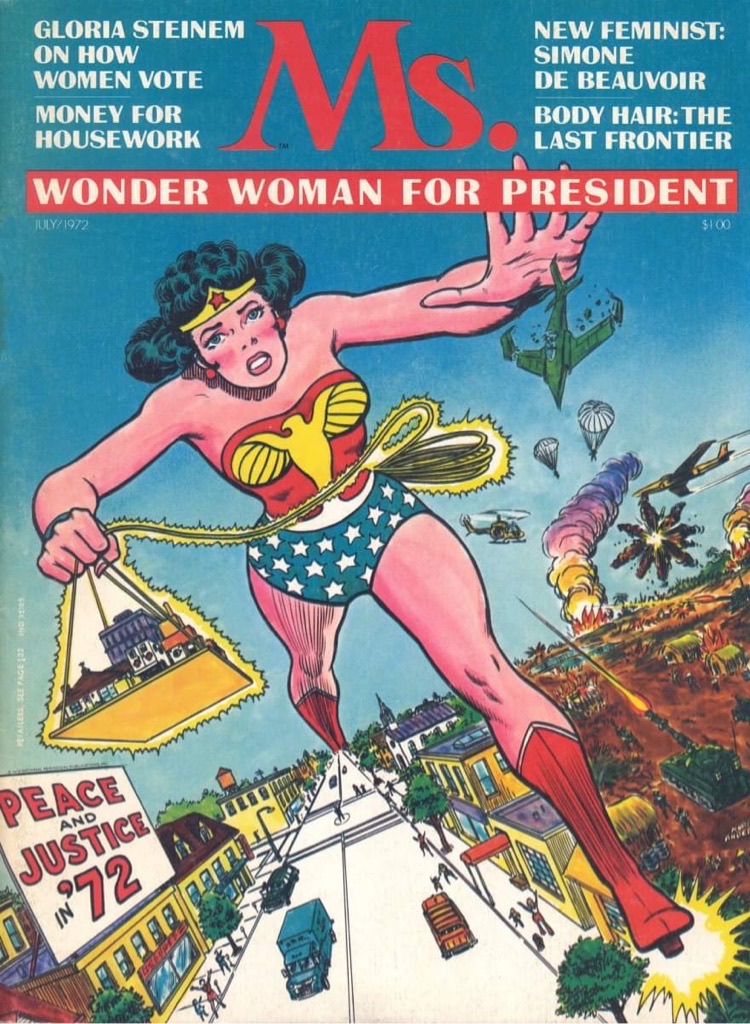
A TV series followed from 1975-79 and, on Wonder Woman’s 75th anniversary, the character fulfilled her potential with the United Nations’, albeit controversial, decision to name her honorary ambassador for the empowerment of women and girls.
Wonder Woman 1984 carries this history lightly. For at least the first two acts, the film has a charming fable-like quality, a kind of reworking of the myth of King Midas. When a crystal capable of granting wishes is unearthed, all seduced by its power are forced to pay a terrible price, a curse that even Wonder Woman can’t escape. But when the film tries to upscale the threat to a global scale, it loses its footing in a series of not particularly interesting consequences and a climax which involves the main villain shouting plot points that the audience will have already grasped.
I have no idea why 1984 was chosen. Perhaps the brief commentary on the power of media surveillance technology was intended to make the film a superhero take on George Orwell’s dystopian novel or, more likely, the film was supposed to cash-in on the horribly mis-guided Eighties’ nostalgia boom. But I get the impression that the Wonder Woman films are dodging decades already colonised by the Marvel Cinematic Universe. Wonder Woman 1984 feels no more like the Eighties than Wonder Woman felt like it was set during The Great War. The script gets its surprisingly few laughs out of the period and those are at the expense of a momentarily reincarnated Steve Trevor (Chris Pine), Wonder Woman’s long dead love, who must get used to Eighties fashion and such modern gizmos as escalators. (Despite the fact that the first escalator was introduced in 1893 and escalators could be found 350 locations, including department stores, by 1920 so I guess Steve didn’t get much shopping in before he sacrificed his life saving the world from Ares in the first Wonder Woman movie).
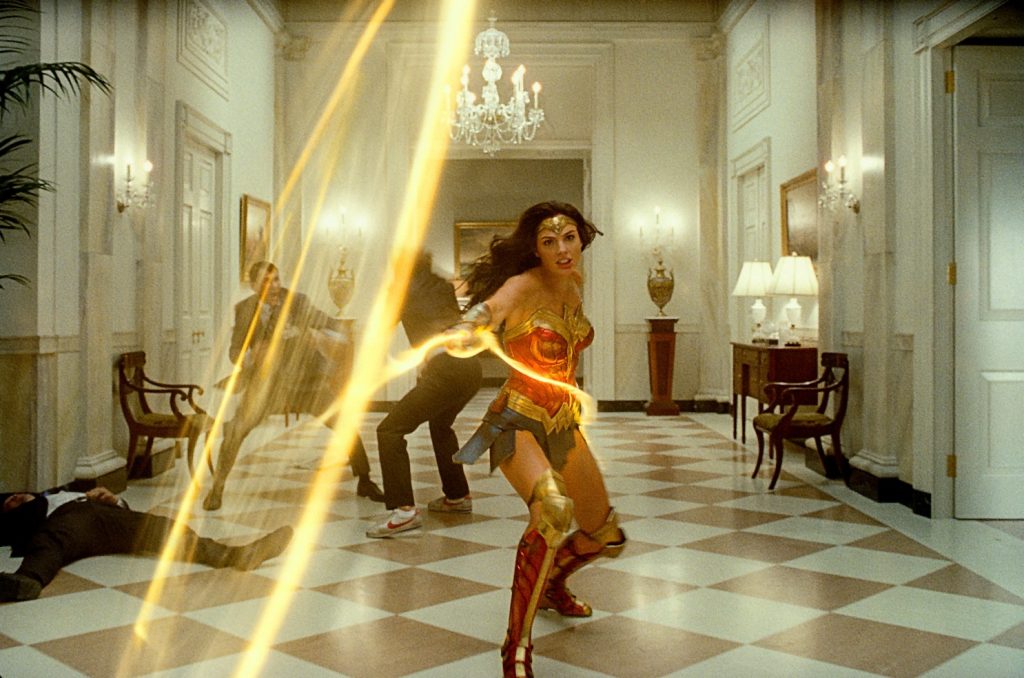
Wonder Woman 1984 lacks the courage of its own convictions. There’s a moment where Maxwell Lord, the film’s tragic villain, meets the President of the United States and sees an opportunity to exploit his neo-con commitment to evangelism – but the script drops this hot potato without exploring the terrifying End Times theology that accompanied the nuclear arms race, or its baleful legacy of bonkers conspiracy theories. Similarly, there is what could have been an allusion to the Israel-Palestine conflict, when a gigantic wall arises from the desert to divide contested desert lands, but that is recast as some kind of conflict between Arab sheiks.
Where I really lost patience were the scenes of everyday humanity suddenly being reduced to a venal mob of selfish individuals at various points in the plot. I think the current corona-crisis shows the masses are a lot more nuanced than this in response to a global crisis. The idea that we live moments away from rioting hoi-polloi leads even the otherwise predictive film Contagion (2011) down a blind alley. Ironically, Wonder Woman 1984 makes much use of Wonder Woman’s lasso of truth, but can’t be honest about the time in which the film is set, or the issues to which it alludes. The scenes of humanity rioting are spliced in at points where it is far from clear what is triggering the behaviour.
This will sound rude, but Gal Gadot’s is really little better than Shwarzenegger-tier as a performer but as Arnie owns the role of a Terminator, so too Gadot owns Wonder Woman. The camera is in love with her, even when all she is asked to do is swoop through the clouds.
Can Wonder Woman fly? I forget.
There’s an underdeveloped plot about a suit of golden armour that Wonder Woman accepts as her own and grants her immunity to everything other than being turned into some tedious CGI for the film’s finale. By failing to take time developing its secondary dramatic threads, the film ends with a protracted bout of yelling. For a while I felt menaced by death from ear ache.
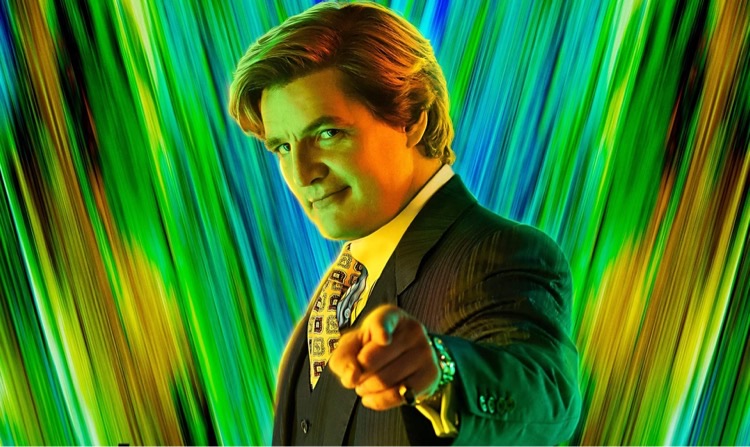
Gadot is supported by an excellent cast. Pedro Pascal plays the venal Maxwell Lord, a character taken from the comics but is played just the right side of a Donald Trump caricature. Others have suggested his cinema character owes more from Glorious Godfrey, a parody of Stan Lee in Kirby’s Fourth World trilogy. But the whole DC Extended Universe’s obsession with “Gods and Monsters” stuff is wisely avoided, even if Wonder Woman would be the best place for it.
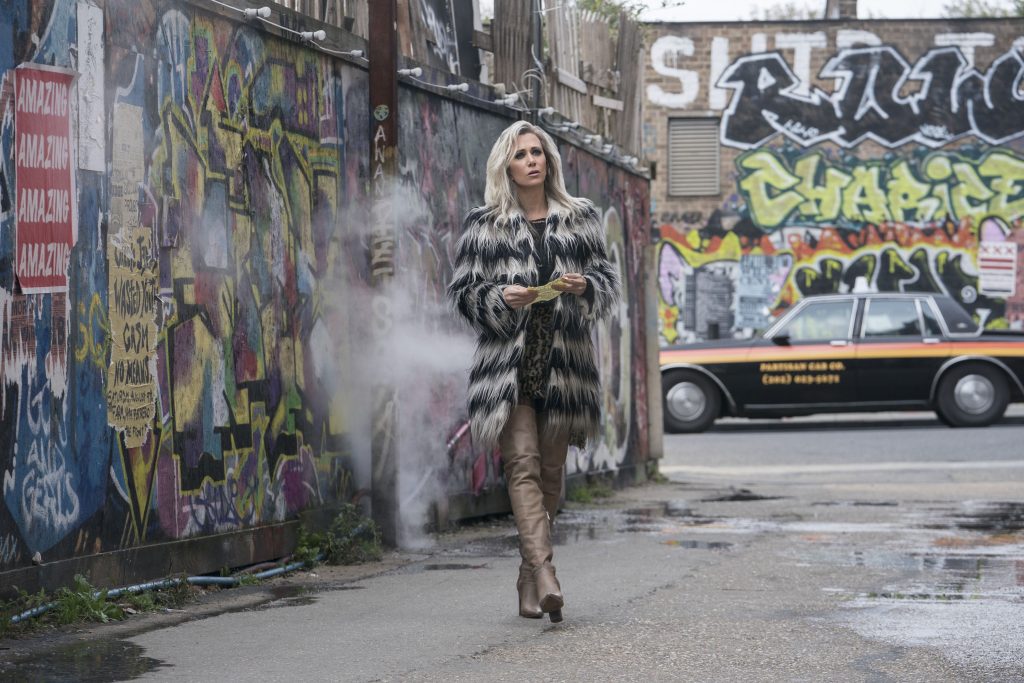
Comedian Kristen Wigg is excellent as Wonder Woman’s long time enemy “The Cheetah”. However, the film uses her current identity of Barbara Minverva, which is profoundly wrong headed. The Cheetah was created to be an exemplar of baser emotions including jealousy but Minerva was the Roman goddess of Wisdom, who is often depicted accompanied by an owl. Sadly, Wonder Woman 1984 transforms the character into a raggedy CGI furry for a murky CGI fight scene. In retrospect, the film adaptation of Cats looks a whole lot better.
Wonder Woman 1984 is garnering a lot of four and five star reviews. It certainly doesn’t deserve less than four, not that star ratings are particularly meaningful. For the most part, the fim is beguiling, watchable and had me smiling. Then the editing takes a wrong turn. The film’s only set piece – an armoured car chase – is badly fumbled, to the point where it is hard to place which vehicle is where, particularly how far the vehicles are from children playing in their path or even why Lord would want to run them over.
As a lecturer, I used to joke that I could break out an “emergency kitten” to pass around the class when discussion in seminars began to flag. Children serve much the same function ihere . Perversely, I was reminded of absurd hyperbole of the Day to Day ‘Helicopter of Doom’ sketch which reminded us that the machines have blades for cutting air – air that’s soft and easy to slice, like human beings” before one helicopter veers off towards a field of children “looking for worms!”.
Whether or not there’s a third Wonder Woman movie may well depend on the state of the film industry post virus. Wonder Woman 1984 will be streamed on Christmas Day in the United States. I’d be up for another outing with Gal Cadot in the role. There is enough good going on with the movie to make it far from old rope.
Tim Robins
Readers are reminded a review is an opinion. Other opinions are available.
• Wonder Woman 1984 is in selected UK cinemas now – please observe your local pandemic restrictions and be safe. The film streams on Disney+ from Christmas Day in the US
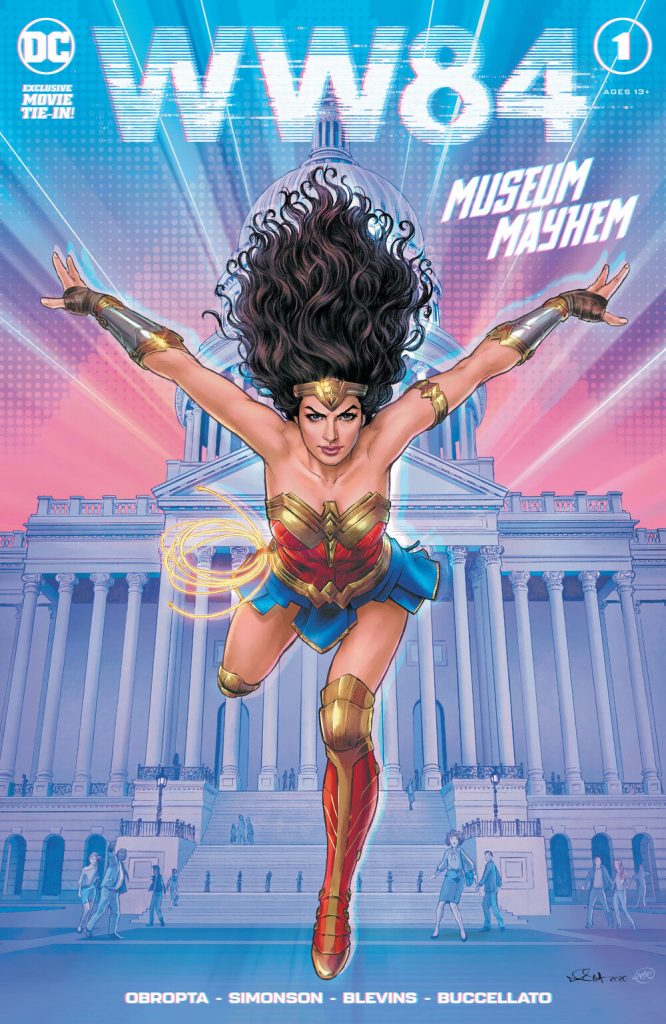
• DC released a comic book prequel to the film. Wonder Woman 1984 #1 lead story, “Museum Madness” is by writers Anna Obropta and Louise Simonson with art by Bret Blevins. The back-up story, “Wolf Cubs”, by writer Steve Pugh and artist Marguerite Sauvage, is set in the 1980s and has previously been published in DC Digital Firsts’ Wonder Woman: Agent of Peace #6.
• Iron Studios has announced two new statues based on Wonder Woman 1984slated for release in 2021 – Cheetah and Wonder Woman
A freelance journalist and Doctor Who fanzine editor since 1978, Tim Robins has written on comics, films, books and TV programmes for a wide range of publications including Starburst, Interzone, Primetime and TV Guide.
His brief flirtation with comics includes ghost inking a 2000AD strip and co-writing a Doctor Who strip with Mike Collins. Since 1990 he worked at the University of Glamorgan where he was a Senior Lecturer in Cultural and Media Studies and the social sciences. Academically, he has published on the animation industry in Wales and approaches to social memory. He claims to be a card carrying member of the Politically Correct, a secret cadre bent on ruling the entire world and all human thought.
Categories: downthetubes Comics News, downthetubes News, Features, Film, Other Worlds, Reviews, US Comics
 In Review: Ant-Man and The Wasp: Quantumania
In Review: Ant-Man and The Wasp: Quantumania  In Review: Black Panther – Wakanda Forever
In Review: Black Panther – Wakanda Forever  In Review: Black Adam (PG-13)
In Review: Black Adam (PG-13)  In Review: Doctor Strange in the Multiverse of Madness (12A, 2022)
In Review: Doctor Strange in the Multiverse of Madness (12A, 2022)